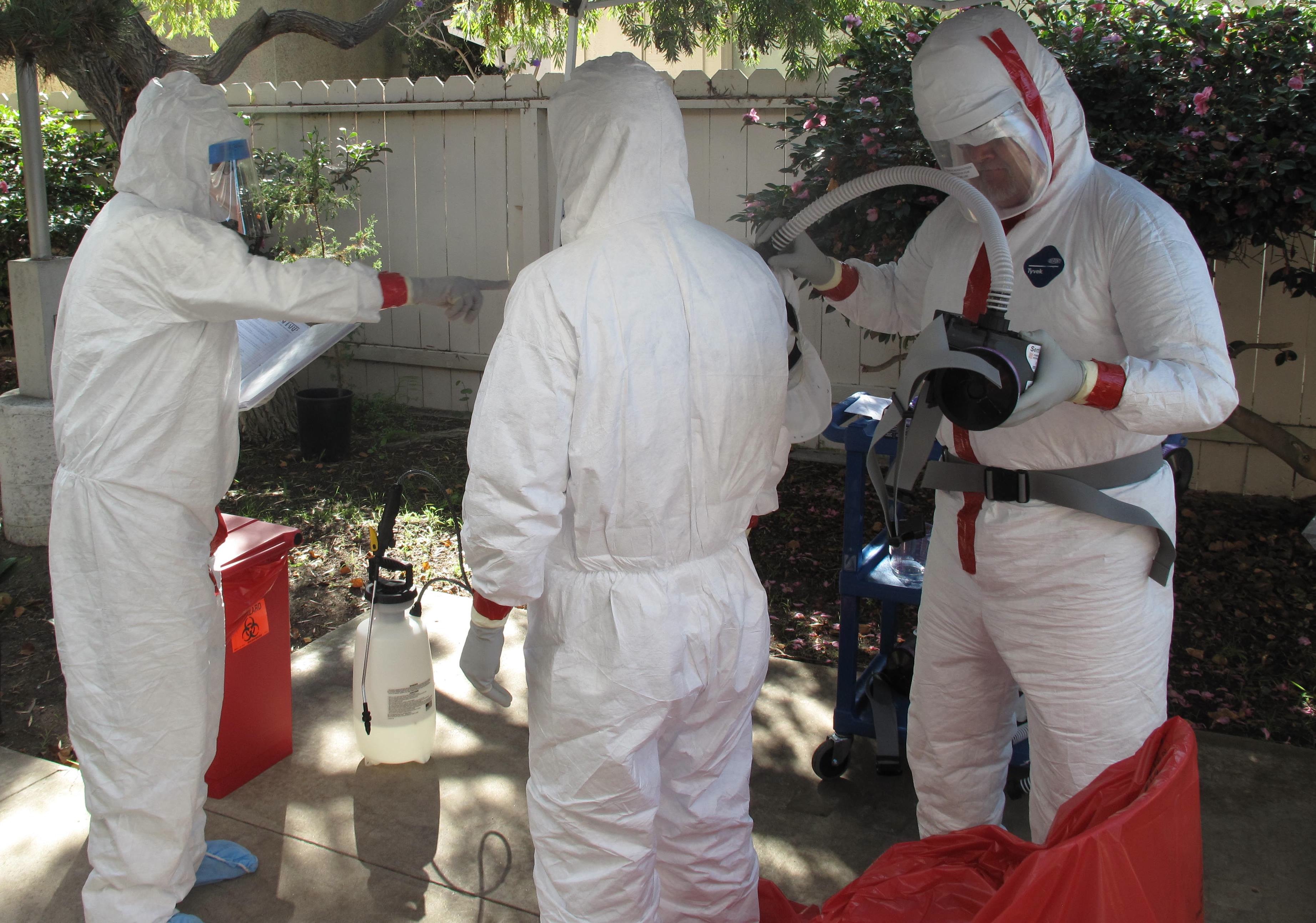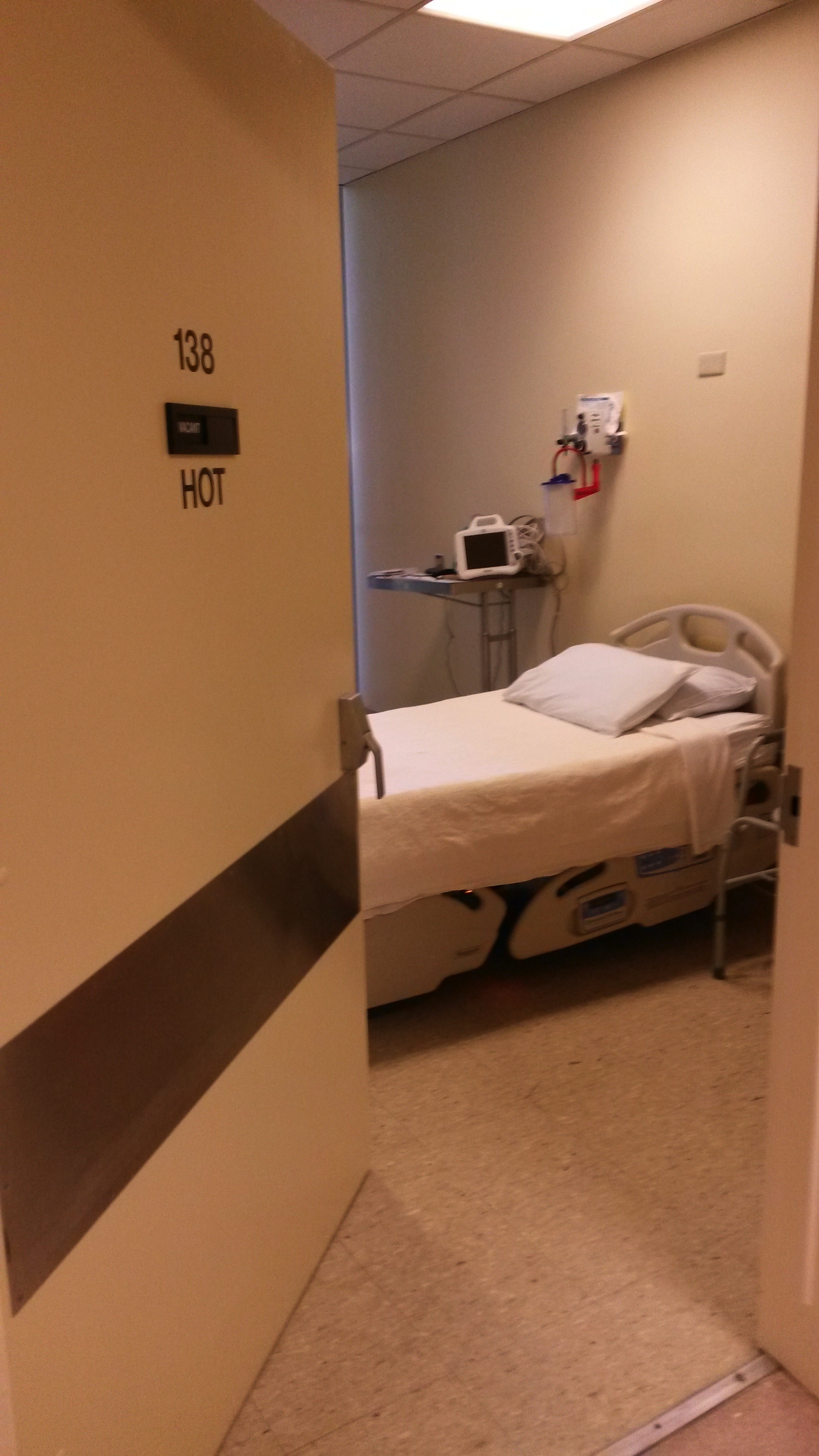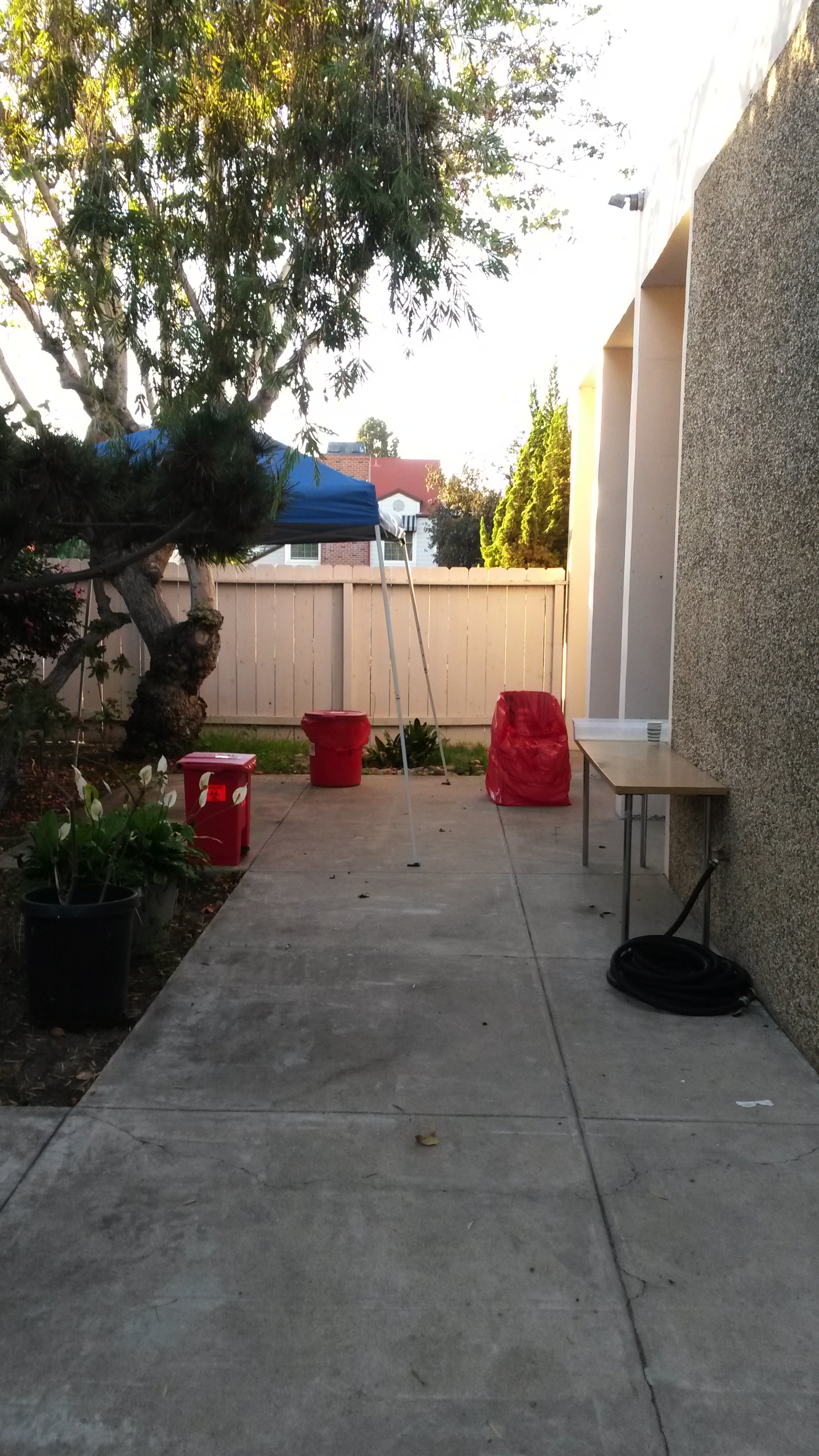
Nurses wearing protective gear to treat potential Ebola patients
Last month, a man in Texas who had recently arrived from Liberia, visited his local hospital emergency room, exhibiting flu-like symptoms. He was sent home with an antibiotic. Days later, after he became much sicker, it was determined that he had Ebola. The case spread panic across the county.
Within days Sharp Coronado Hospital, in conjunction with other Sharp Hospitals, began to prepare for the possibility that someone with the deadly Ebola virus might walk in to its emergency room seeking care. Building on the hospital’s disaster preparedness program, which began years ago, it assembled a specialized unit to treat this infectious disease and developed protocols to isolate and treat a potential Ebola patient.
A section of the hospital was condoned off and three rooms were set aside to test and treat potential Ebola patients. A unique configuration of the hospital allows sick patients in need of quarantine can be taken out of the emergency room directly into that isolation unit, without coming into contact with the general hospital population.
 Room set aside for confirmed Ebola cases
Room set aside for confirmed Ebola cases
Once in the isolation unit, the potential Ebola patients will be tested; if they have the virus they will receive immediate treatment before being transported by ambulance to Sharp Memorial Hospital for continued care, said Dr. Mark Tamsen,
Beyond the quarantine unit, a rapid response team was established that includes experts in infection protection, a clinical care coordinator, and a safety and decontamination officer. Additionally, all the necessary equipment was procured.
“We even have the ‘space suits’ with ventilation masks procured,” Tamsen said. “Everyone has been trained to put them on and taken them off.”
Coronado’s preparedness response time was quicker than many others in the system and other hospitals across the county. “We were able to move quickly because we already had protocols and the equipment for a biological emergency, which is what Ebola is, so we only had to collect more of what we had,” said Christopher Tan, Manager of Emergency Services at Sharp Coronado.
To ensure everyone knows what to do and how to do it, the hospital has held six drills, including one that past Thursday. And while such extensive preparations may appear excessive to some, the hospital believes that consequences of Ebola are such that every precaution to care for the patient and protect the community at large should be taken. Although the disease is not transmitted through casual contact, the virus is frequently deadly if contracted. First responders, police and fire, hospital workers are particularly vulnerable.
Comparing Ebola to the AIDS crisis of the 1980s, Tamsen said he views Ebola as potentially more contagious. “With AIDS you had to be intimately involved with a patient or be stuck by a needle [an infected person had used] to become infected,” Tamsen said. “With this all it takes is for someone [with the virus] to vomit on you.”
And even if the hospital never sees an Ebola case, the preparation will have been worthwhile, Tamsen believes. After all, there are a number of situations in which the hospital would need to isolate a patient. “We have the ability to isolate and treat a person in any odd-ball situation,” Tamsen said. For example, if a patient who had been exposed to insecticide dust came into the emergency room, that person would have to be isolated and decontaminated. Similarly, someone believed to have been exposed to Anthrax would need to be isolated inside the hospital. The same quarantine unit and infection control ‘space suits’ could be utilized in either of those scenarios.
 The ingress and egress to the special Ebola unit
The ingress and egress to the special Ebola unit
Exposures to these unusual hazards are not the only disasters the hospital is prepared to handle. Long before anyone outside of Africa was aware of Ebola, Sharp Coronado worked to prepare for any number of disaster scenarios, such as a serious, highly contagious flu outbreak, on the order of the 1918 influenza pandemic that killed 21.5 million people. In the event of such an outbreak, the hospital has procedures in place to protect staff members and other patients. “We have a surgical tent that can be set up in the parking lot under the medical center to isolate and treat patients,” Tamsen said.
They also have a helicopter landing pad, at Tidelands Park, to transport people off of Coronado should the bridge shut down or collapse following an earthquake. Further, in that event, the hospital has plans in place to bring in hospital staff by ferry.
The list of preparations goes on indefinitely: if the city’s power grid goes down, the hospital is prepared with backup generators; if the cell phone towers go down, the hospital will break out its supply of walkie-talkies. They’ve even made arrangements to bring in local ham radio operators to help with communications.
“Emergency room doctors are the ultimate boy scouts,” Tamsen said. “We are prepared.”
Photos courtesy of Sharp Coronado Hospital
——–
Gloria Tierney
Staff Writer
eCoronado.com




